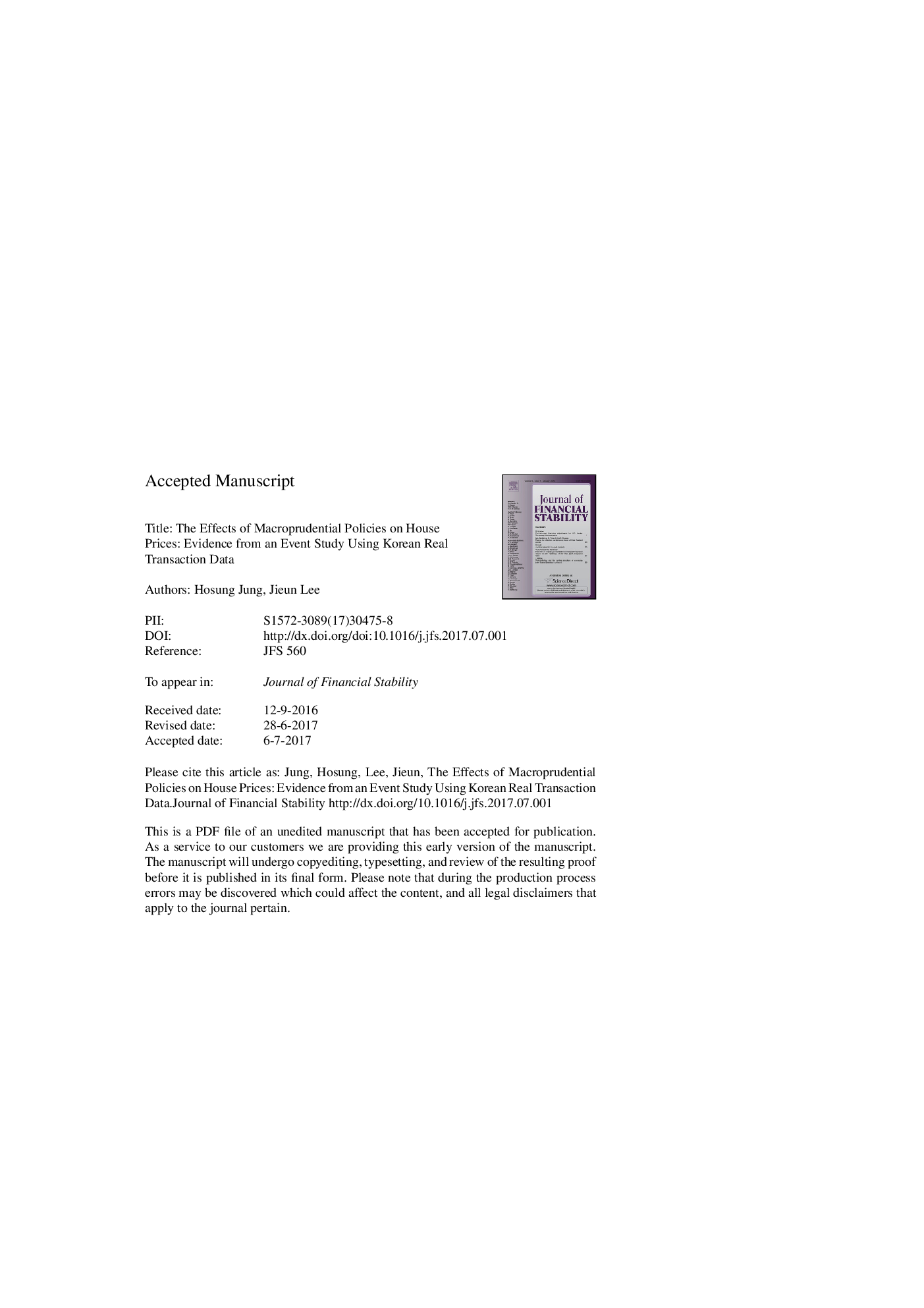| Article ID | Journal | Published Year | Pages | File Type |
|---|---|---|---|---|
| 5106503 | Journal of Financial Stability | 2017 | 56 Pages |
Abstract
This study analyzes the impact on housing price growth of targeted macroprudential policies-specifically limits on the loan-to-value (LTV) and debt-to-income (DTI) ratios in Korea, one of the few developed countries with relatively long and successful experience in implementing these policies. Using an event study methodology with real-transaction data for a monthly panel of 73 districts, we find that DTI limits play important roles in stabilizing housing prices than LTV limits. The loosening of both DTI and LTV limits boosts house price growth whereas the tightening only of DTI limits reverses it. After factors other than implementation of these regulations are controlled for, the results are robust except for the cases of LTV loosening. Furthermore, we uncover that the levels of and extents of changes LTV limits are important factors that can amplify or reduce the regulation effects. Overall, the results suggest that macroprudential policies, especially DTI limits, can be useful tools for curbing excessive household debt and subsequent house price bubbles.
Related Topics
Social Sciences and Humanities
Economics, Econometrics and Finance
Economics, Econometrics and Finance (General)
Authors
Hosung Jung, Jieun Lee,
